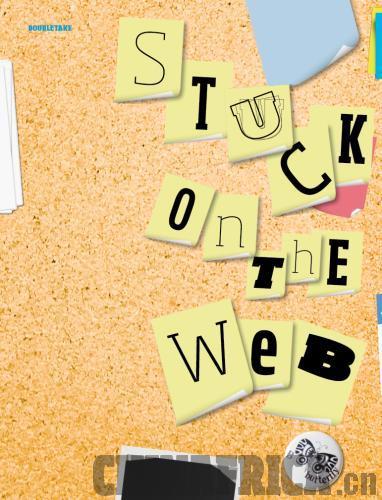|
 
Sites like LinkedIn, Douban, Weibo, Google Buzz and Tumblr (to name a few) have transformed the way we interact as our lives become increasingly tied to the computer and the Internet. Zhang Wenli, an editor at Peking University Press in Beijing, and Pride Phiri, a Zimbabwean IT consultant who has lived in China for two years, discuss the personal impact of life online.
A Five-Year Affair with Douban
by Zhang Wenli
In December 2005 I signed up to Douban, China's largest online community for book, movie and music addicts. It had only been around for nine months at that point, but was full of books and book reviews. For a bookworm like me, it was irresistible.
Back then, I didn't use Douban often. I was still a student and had a heavy course load. But things changed when I started to work as an editor with a publishing house at the beginning of 2008. Douban became an integral part of my life.
Nowadays, the first thing I do every morning at the computer is to log on to the site to see what books, movies, music or events my network friends are recommending. I even use my phone to log on when taking the bus or subway. Actually, I'm listening to radio on Douban as I write this story.
Life speeds by, especially in big Chinese cities. People have less time to connect in real life. Over the past five years I've made many friends on Douban, but my closest friend online is from the city of Hangzhou, east China's Zhejiang Province. We got to know each other through commenting, which led to chatting over MSN and on Douban as well. When she came to Beijing to do some research, we met for a meal and talked to our hearts' content. As a shy person who is a little afraid of strangers, it was a big step for me.
As for my work, I set up a Douban page for the company where I frequently update information on our newly published books, talk with readers and get their feedback. While it has been hard to separate my work life from my personal life now that Douban is so central in both, the set-up has its advantages.
Last July I attended a lecture at the National Library in Beijing given by a well-known scholar, Bai Qianshen, on the art of ancient Chinese painting and calligraphy. There, I met an editor – but we didn't talk that day, we met on Douban afterward. Later I changed my job, and surprisingly, I found she was my new colleague. We became good friends. In my diary, I wrote about my amazement over the power of Douban, Some people feel like old friends even at the first meeting."
Gorging Online
by Pride Phiri
My introduction to social networking came in my first year of university. I had never been online before then nor used a computer extensively. The archaic machines at my high school had been good for a few rounds of solitaire and nothing more. Growing up in Zimbabwe at the turn of the century where even cell phones were a novelty, the Internet was just something you read about and then added to the list of things that while nice to have, didn't really factor into everyday life.
Built by graduate students, the university's network was designed for file sharing. Episodes of American TV shows, all the rage across Africa, were shared across campus residences. However, the network also featured some basic social networking features like user profiles and the ability to chat with other students online. I was immediately hooked – and not just because I was studying computer science.
In my second year of university, Hi 5 came along. Due to the success of Facebook, people don't seem to recall this social networking pioneer but I very much do. Hi 5 introduced me to what we take for granted today. Sharing my pictures and trivial day-to-day happenings became second nature. I wondered how I had gone 20 years of my life without being able to gorge on self promotion and narcissism on such a global scale.
This isn't to say that social networking isn't useful. Facebook's arrival improved the medium immensely, and I value it personally and professionally now that I live in China. Along with basking in the limelight (I have 500-odd online friends), I use Facebook to learn about people I meet in Beijing. It helps me to relate to people with different cultural backgrounds. Twitter, however, is where I spend most of my time. I'm astounded by its simplicity, and with my background in computer science I've earmarked it for potential business possibilities.
I recently found myself wondering about the differences between my online persona and my real life personality. For the most part, I've kept true to myself. However, like most people, I'm guilty of highlighting my positives in my online persona. But I also feel like as I get older, I'm less interested in the escapism offered by a fictional online persona. Social networking can't replace actual human contact. We didn't get to be 7 billion strong by sitting behind our computers typing away at each other. |